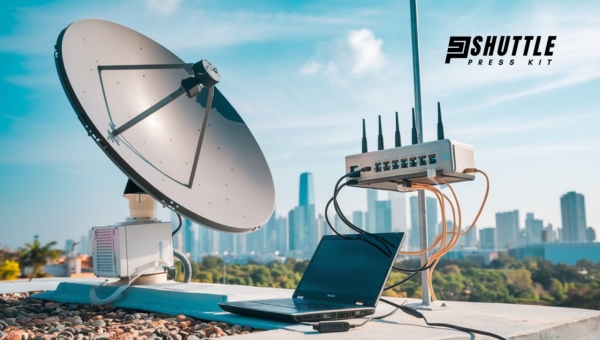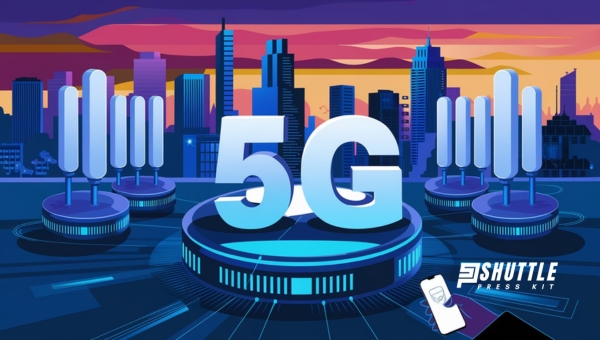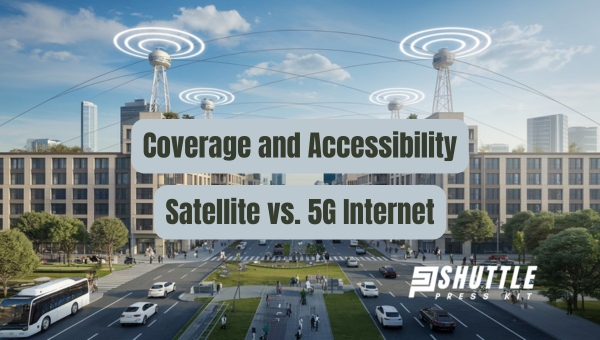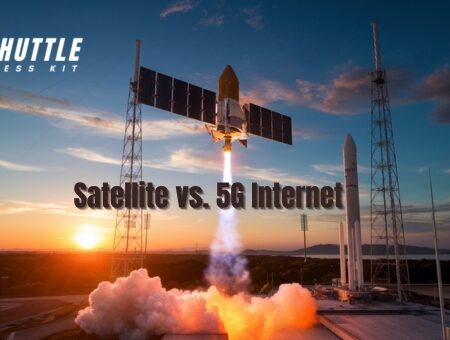When it comes to choosing the best way to surf the web, the debate between Satellite vs. 5G Internet is hotter than ever.
Are you constantly frustrated by slow internet speeds and dreaming of a lightning-fast connection? Well, you’re not alone! Today, I’m diving into this battle of technology to see which one can truly give you that seamless online experience you crave.
| Feature | Satellite Internet | 5G Internet |
|---|---|---|
| Speed | Generally up to 100 Mbps, with average speeds around 25 Mbps. | Can reach speeds up to 2 Gbps, depending on network conditions. |
| Latency | Higher latency, often around 600 ms, making it less suitable for real-time applications. | Lower latency, often in single-digit milliseconds, ideal for gaming and streaming. |
| Coverage | Available almost everywhere, especially in rural areas, as long as there is a clear view of the sky. | Coverage is expanding but is still limited to areas with cell tower infrastructure. |
| Installation | Requires a satellite dish and professional installation, which can be costly. | Typically does not require extensive installation; often plug-and-play with minimal setup. |
| Data Caps | Many plans have data caps, leading to throttled speeds after limits are reached. | Generally offers unlimited data options, but may have speed throttling during congestion. |
| Cost | Monthly fees range from $49.99 to $250, with high installation costs. | Monthly fees typically range from $25 to $70, with low or no installation costs. |
Satellite Internet Connectivity
Satellite internet is a type of wireless connection that utilizes satellite technology to provide internet access to users. This form of internet connectivity operates by deploying communication satellites into the Earth’s orbit, which act as relays between the internet service provider’s (ISP) hub and the user’s satellite dish.

It is particularly beneficial in remote or rural areas where traditional broadband or fiber-optic connections are not feasible or available.
Understanding 5G Internet Technology
5G internet represents the fifth generation of mobile network technology, succeeding 4G LTE networks. It is designed to provide significantly faster data speeds, reduced latency, and greater connectivity for a wide array of devices beyond smartphones and tablets.

With the capability to deliver download speeds up to 100 times quicker than its predecessor, 5G technology aims to support the ever-growing demand for data while enabling the seamless operation of futuristic applications such as autonomous vehicles, smart cities, and immersive augmented and virtual reality experiences.
Also Read: Starlink vs HughesNet: Which Wins the Satellite Battle?
Coverage and Accessibility
In the rapidly evolving landscape of internet connectivity, the debate between satellite and 5G internet services centers significantly around their coverage and availability.

Satellite internet, championed by providers like HughesNet, Viasat, and the burgeoning Starlink, boasts an almost unparalleled reach. Its greatest asset lies in its capacity to deliver connectivity regardless of location, from sprawling urban centers to the most secluded rural areas.
This attribute is particularly beneficial for locations where traditional high-speed options such as fiber or cable are nonexistent or limited to slower alternatives like DSL. Satellite internet shines as a beacon of connectivity in these scenarios, offering a viable pathway to faster speeds.
Speed and Bandwidth
When it comes to internet speed and bandwidth, satellite and 5G offer contrasting profiles that cater to different needs. Satellite internet traditionally lags in speed, with services like HughesNet providing speeds capped at 25Mbps, which is adequate for basic use yet falls short of delivering a high-speed experience.
Viasat slightly improves the game by offering speeds up to 100Mbps, but it’s Starlink that breaks traditional barriers by offering speeds competitive with cable and fiber optics, though issues such as availability and long waitlists mar its promise.
On the data front, satellite services often impose limitations; HughesNet’s top-tier plan offers only 200GB per month—a restriction that could dampen the experience for heavy streamers—and while Viasat extends up to 500GB of data, its cost makes it a less appealing option for routine use.
Key Considerations for Selecting Your Internet Service
Choosing the right internet service is crucial for ensuring that your online activities run smoothly, whether for work, gaming, streaming, or simply browsing. With various options available, including satellite, 5G, DSL, and cable internet, it’s essential to weigh several factors to find the best fit for your needs and lifestyle. Here’s what you should consider:
- Available Options in Your Area: Start by identifying which types of internet services are accessible at your location. Rural areas might have fewer choices, primarily relying on satellite or DSL options.
- Budget Constraints: Compare the costs associated with each type of service. Satellite internet generally tends to be more expensive than its counterparts like 5G home internet or cable services when considering data allowances and speeds.
- Usage Requirements: Determine how you predominantly use the internet. If you engage in activities that demand high bandwidth like online gaming or streaming HD videos, a fast and stable connection such as fiber-optic or 5G would be preferable over satellite due to its lower latency.
- Data Limitations: Check if there are any data caps on the plans you’re considering. Satellite services often impose data usage limits that can affect their suitability for heavy usage compared to unlimited plans offered by other types of connections.
These considerations will help guide you toward an informed decision that aligns with both your practical requirements and budgetary constraints while ensuring a satisfying online experience.
Also Read: Amazon’s Project Kuiper vs Starlink: Showdown Unpacked
What are the main differences between satellite and 5G internet?
Satellite internet provides global coverage from orbit, making it great for remote areas, while 5G offers high-speed connectivity in densely populated zones through ground-based stations.
Can weather affect satellite and 5G internet performance?
Yes, satellite internet can be disrupted by severe weather, whereas 5G is less susceptible but still can face issues in extreme conditions.
Which is faster, satellite or 5G internet?
Generally, 5G internet offers faster speeds due to its advanced technology and closer proximity to users, compared to the longer distances satellite signals must travel.
Which internet type is better for urban areas?
5G is typically better for urban areas owing to its high-speed capabilities and infrastructure that supports dense populations.
Conclusion
Choosing between satellite and 5G internet depends largely on one’s specific needs and location. Satellite internet offers global coverage, making it a viable option for remote areas where traditional broadband or 5G signals cannot reach.
However, it often suffers from higher latency and lower data caps when compared to 5G. On the other hand, 5G internet promises higher speeds, lower latency, and greater capacity, catering perfectly to urban environments and densely populated areas.
